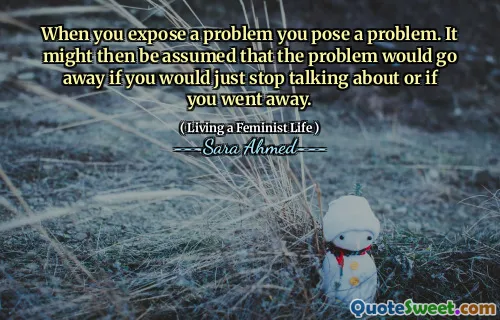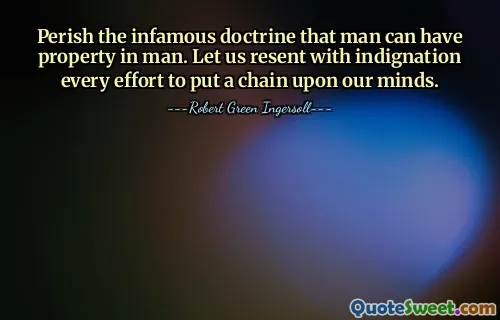
When you expose a problem you pose a problem. It might then be assumed that the problem would go away if you would just stop talking about or if you went away.
This quote highlights a nuanced aspect of addressing issues—sometimes, bringing problems to light can make others uncomfortable or even unintentionally reinforce the existence of the problem itself. In challenging societal norms or deeply ingrained issues, the act of exposing a problem isn't a neutral act; it can be perceived as a confrontation or an attack, prompting defensiveness rather than reflection. There's also the risk that once a problem is articulated publicly, it might be dismissed or minimized, effectively silencing further discussion.
Engagement with problematic issues often requires perseverance, despite potential backlash or the suggestion that by discussing certain matters, we are inherently creating conflict. Ignoring or avoiding the problem might seem like a simple solution, but it often prolongs the suffering or injustice by allowing it to persist in the shadows. The quote invites us to reflect on the importance of ongoing dialogue and the necessity of confronting discomfort head-on to facilitate genuine change.
In contexts such as feminism, social justice, or personal growth, this idea underscores that exposing injustice or flaws isn't an act of weakness but an act of strength and integrity. It challenges the misconception that silence or avoidance can resolve issues. We must recognize that problems often don't go away simply because they are ignored; instead, they may fester or become more difficult to address over time. Therefore, persistence in discussing problems, even when it feels uncomfortable or futile, is crucial for progress. It reminds us that the act of speaking up is foundational to creating awareness, fostering change, and achieving justice, even when it seems to provoke more problems in the short term.






